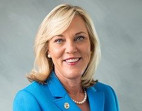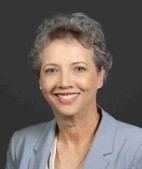[U.S. Census Bureau] – Los Angeles County led the nation in the number of Hispanic-, Asian-, and American Indian and Alaska Native-owned firms in 2012, according to estimates released Tuesday by the U.S. Census Bureau. It also ranked second in the number of black or African American- and Native Hawaiian and Other Pacific Islander-owned firms (after Cook County, Ill., and Honolulu County, Hawaii, respectively).
Collectively, Los Angeles County was home to 631,218 minority-owned firms: 332,967 Hispanic, 213,203 Asian, 81,563 black or African American, 11,081 American Indian and Alaska Native, and 3,798 Native Hawaiian and Other Pacific Islander. Consequently, with 3.2 percent of the nation’s total population (according to the Census Bureau’s July 1, 2012, population estimates), the county was home to 7.9 percent of its minority-owned businesses in 2012.
 The majority of firms in Los Angeles County (55.0 percent) were minority-owned. This includes 29.0 percent Hispanic-owned, 18.6 percent Asian-owned, 7.1 percent black or African American-owned, 1.0 percent owned by American Indians and Alaska Natives, and 0.3 percent Native Hawaiian and Other Pacific Islander-owned.
The majority of firms in Los Angeles County (55.0 percent) were minority-owned. This includes 29.0 percent Hispanic-owned, 18.6 percent Asian-owned, 7.1 percent black or African American-owned, 1.0 percent owned by American Indians and Alaska Natives, and 0.3 percent Native Hawaiian and Other Pacific Islander-owned.
These findings for Los Angeles County are an example of the local analysis possible using the final, revised statistics from the 2012 Survey of Business Owners released today.
Nationally, today’s findings show the number of minority-owned firms in the U.S. rose from 5.8 million in 2007 to 8.0 million in 2012. This includes a 46.3 percent increase in the number of Hispanic-owned firms over the period, from 2.3 million to 3.3 million, and a 34.5 percent rise in the number of black or African American-owned firms, from 1.9 million to 2.6 million. Additionally, the number of Asian-owned firms climbed from 1.5 million to 1.9 million, an increase of 23.8 percent. For added context, total U.S. firms increased 2.0 percent during the same period, from 27.1 million in 2007 to 27.6 million in 2012.
The 9.9 million women-owned firms in 2012 were up more than 2 million from five years earlier when there were 7.8 million women-owned businesses, a 26.8 percent increase. As a comparison, male-owned firms increased 6.8 percent from 13.9 million to 14.8 million during the same period.
The Survey of Business Owners is a sample survey that provides the only comprehensive, regularly collected source of information on selected economic and demographic characteristics for businesses and business owners by gender, ethnicity, race and veteran status. Today’s release provides data at detailed geographic (nation, state, metropolitan area, county and economic place) and industry levels (two-digit through six-digit industry coding level). In August, preliminary data were published for these groups at the national, state and two-digit sector levels.
Other highlights from the final 2012 Survey of Business Owners data:
Women
· There were 9.9 million women-owned firms nationally in 2012, up from 7.8 million or26.8 percent from 2007.
· Nearly 90 percent (89.5 percent) of women-owned firms were nonemployer firms (businesses with no paid employees). This is higher than the total proportion of nonemployer firms, which is 80.4 percent (22.2 million nonemployer firms).
· Receipts for women-owned firms rose 18.7 percent, from $1.2 trillion in 2007 to $1.4 trillion in 2012.
· While women-owned firms accounted for 35.8 percent of all U.S. firms, they constituted the majority of firms in the health care and social assistance sector (62.5 percent), the educational services sector (54.2 percent), and the other services sector (51.8 percent). For comparison, women accounted for 51.4 percent of the 18 and older population in 2012.
· California led all states in the number of women-owned firms in 2012, with 1.3 million. Proportionately, the District of Columbia led all states with 42.7 percent of all firms owned by women.
· Los Angeles County had more women-owned firms than any other county in 2012 with 439,513.
Minorities
· There were 8.0 million minority-owned firms nationally in 2012, up from 5.8 million, or 38.1 percent, from 2007.
· Receipts for minority-owned firms climbed from $1.0 trillion to $1.4 trillion over the 2007-2012 period (34.7 percent).
· All but 908,800, or 11.4 percent, minority-owned firms in 2012 were nonemployers.
· Minority-owned firms accounted for 28.8 percent of all U.S. firms in 2012; in the other services sector and the transportation and warehousing sector, this percentage rose to 43.8 percent and 43.3 percent, respectively.
· California led all states with 1.6 million minority-owned firms in 2012. However, proportionally speaking, both Hawaii and the District of Columbia outranked California with 62.6 percent and 47.3 percent, respectively. California was comprised of 45.6 percent minority-owned firms in 2012.
Hispanics
· There were 3.3 million Hispanic-owned firms nationally in 2012, up from 2.3 million, or 46.3 percent, from 2007.
· All but 287,501, or 8.7 percent, of Hispanic-owned firms were nonemployers in 2012.
· About half (49.1 percent) of Hispanic-owned firms in 2012 were owned by people of Mexican, Mexican-American, or Chicano background. California and Texas were the only two states with over half a million firms owned by people of Mexican, Mexican-American, or Chicano background, with 580,450 and 557,273 firms, respectively.
· Florida led all states in the number of firms owned by people of Cuban background (224,878) and Puerto Rican background (71,291).
· Although Hispanic-owned firms comprised 12.0 percent of all U.S. firms, they made up
22.8 percent in the administrative and support and waste management and remediation services sector. For comparison, Hispanics accounted for 14.8 percent of the 18 and older population in 2012.
· The number of Puerto Rican-owned firms grew faster between 2007 and 2012 (65.0 percent) than Mexican, Mexican American, or Chicano-owned (56.8 percent) and Cuban-owned firms (12.4 percent). Other Hispanic, Latino, or Spanish-owned firms grew 44.1 percent.
· Three states — California, Texas and Florida — each had more than a half-million Hispanic-owned firms in 2012. California led the way with 815,304. Texas had 687,570 Hispanic-owned firms and Florida had 604,128 Hispanic-owned firms.
· Close to a third, 30.7 percent, of firms in New Mexico were Hispanic-owned — the highest rate in the nation. Hispanic-owned firms also comprised more than one-quarter of all firms in Texas and Florida (29.2 percent and 28.8 percent, respectively).
· In 2012, Los Angeles County led all counties in the number of Hispanic-owned firms (332,967), followed by Miami-Dade County, Fla. (319,653). In 2007, the order of the two counties was reversed.
· Among the 50 most populous U.S. cities, New York, N.Y., had the most Hispanic-owned firms with 199,085. El Paso and Miami had the highest proportion of Hispanic-owned firms with 73.9 percent and 69.2 percent, respectively.
Blacks or African Americans
· There were 2.6 million black or African American-owned firms nationally in 2012, up from 1.9 million or 34.5 percent from 2007.
· All except for 109,137 or 4.2 percent, of black or African American-owned firms were nonemployers.
· While 9.4 percent of all U.S. firms were black or African American-owned, the largest percentage was 19.2 percent in the health care and social assistance sector. For comparison, blacks or African Americans accounted for 13.1 percent of the 18 and older population in 2012.
· The Atlanta metro area had more black or African American-owned firms (176,245) in2012 than any other metro area besides the New York metro area (250,890).
· Georgia had more black or African American-owned firms in 2012 than any other state (256,848), followed by Florida (251,216).
· Cook County, Ill., led all counties in the number of black or African American-owned firms, with 110,155.
· The District of Columbia, Mississippi and Georgia were the only states where more than one-quarter of all firms were black or African American-owned (34.8 percent, 27.7 percent and 27.6 percent, respectively).
· Among the nation’s 50 most populous cities, black or African American-owned firms as a percentage of all firms was highest in Detroit and Memphis, Tenn., in 2012 (77.0 percent and 56.2 percent, respectively).
Asians
· There were 1.9 million Asian-owned firms nationally in 2012, up from 1.5 million or 23.8 percent from 2007.
· Three-fourths (74.9 percent) of the 1.9 million Asian-owned firms were nonemployers. This was a lower proportion of nonemployer firms than for total U.S. firms in 2012 where the proportion of nonemployer firms was 80.4 percent.
· Asian-owned firms comprised 6.9 percent of all firms in 2012. For comparison, Asians accounted for 5.9 percent of the 18 and older population in 2012.
· Asian-owned firms were most likely to be owned by people of Chinese, Asian Indian or Vietnamese background in 2012 (528,702; 377,486; and 310,864; respectively).
· Nearly one-third (31.5 percent) of the nation’s Asian-owned firms were in California in 2012.
· Hawaii was the only state in 2012 in which the majority (51.5 percent) of all firms were Asian-owned. California ranked second with 17.0 percent.
· Among the 50 most populous cities, San Jose, Calif., was the only one where more than one-third (37.3 percent) of all firms were Asian-owned in 2012. Among counties, Honolulu County, Hawaii, had the highest proportion of Asian-owned firms with 62.6 percent.
American Indians and Alaska Natives
· There were 272,919 American Indian and Alaska Native-owned firms nationally in 2012, up from 236,691 or 15.3 percent in 2007.
· While American Indian and Alaska Native-owned firms accounted for 1.0 percent of all U.S. firms, they made up 2.7 percent of those in the agriculture, forestry and fishing and hunting sector. For comparison, American Indian and Alaska Natives accounted for 1.8 percent of the 18 and older population in 2012.
· California had more American Indian and Alaska Native-owned firms than any other state in 2012 (41,254), followed by Oklahoma (27,450).
· Alaska was the state where American Indian and Alaska Native-owned firms comprised the highest percentage of all firms (11.0 percent).
· Los Angeles County had more American Indian and Alaska Native-owned firms than any other county in 2012 with 11,081 firms.
Native Hawaiians and Other Pacific Islanders
· The number of Native Hawaiian and Other Pacific Islander-owned firms rose 45.3 percent from 37,687 in 2007 to 54,749 in 2012.
· More than half (52.9 percent) of the nation’s Native Hawaiian and Other Pacific Islander-owned firms were in either Hawaii or California in 2012 (with 14,537 and 14,446 firms, respectively).
· Native Hawaiian and Other Pacific Islander-owned firms comprised 12.3 percent of all firms in Hawaii. In no other state did Native Hawaiian and Other Pacific Islander-owned firms comprise as much as 1 percent of all firms.
· Honolulu County was home to 8,487 Native Hawaiian and Other Pacific Islander-owned firms, more than all but two states (Hawaii and California).
Veterans
· There were 2.5 million veteran-owned firms nationally in 2012, up from 2.4 million or3.0 percent in 2007. Veteran-owned firms comprised 9.1 percent of all U.S. firms.For comparison, veterans accounted for 8.9 percent of the population in 2012, according to the American Community Survey.
· Of the 50 most populous cities in 2012, Virginia Beach had the highest proportion of veteran-owned businesses with 15.2 percent.
· California and Texas led all states in the number of veteran-owned firms, with 252,377 and 213,590 firms, respectively.
· Los Angeles County had more veteran-owned firms than any other county in 2012, with 69,608.
Additional data on the characteristics of businesses and business owners will be published in spring 2016.
—
Note: References such as “Mexican-owned,” “Puerto Rican-owned,” “Cuban-owned” or “other Hispanic- or Latino-owned” businesses refer only to businesses operating in the 50 states and the District of Columbia that self-identified 51 percent or more of their ownership in 2012 to be by individuals of Mexican, Puerto Rican, Cuban or other Hispanic or Latino origin. The Survey of Business Owners does not distinguish between U.S. residents and nonresidents. Companies owned by foreign governments or owned by other companies, foreign or domestic are included in the category “Publicly held and other firms not classifiable by gender, ethnicity, race, and veteran status.”
The Survey of Business Owners is conducted every five years as part of the economic census. The 2012 survey collected data from a sample of more than 1.75 million businesses. The collected data in a sample survey are subject to sampling variability, as well as nonsampling errors. Sources of nonsampling errors include errors of response, nonreporting and coverage. More details concerning the SBO survey design, methodology and data limitations can be found at http://www.census.gov/econ/sbo/methodology.html.
Like this:
Like Loading...
Related




 Tweet This
Tweet This Facebook
Facebook Digg This
Digg This Bookmark
Bookmark Stumble
Stumble RSS
RSS





























REAL NAMES ONLY: All posters must use their real individual or business name. This applies equally to Twitter account holders who use a nickname.
0 Comments
You can be the first one to leave a comment.